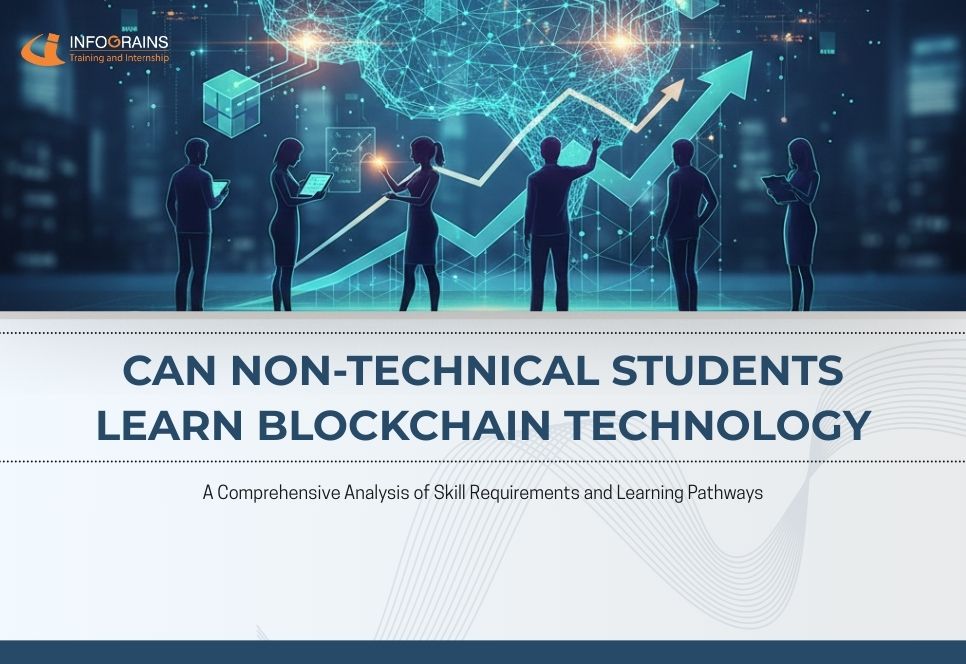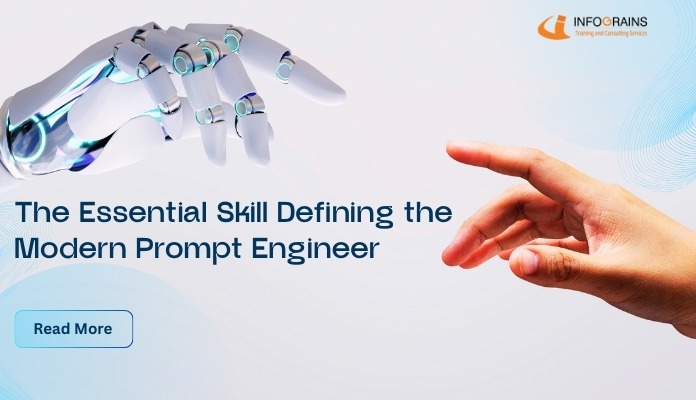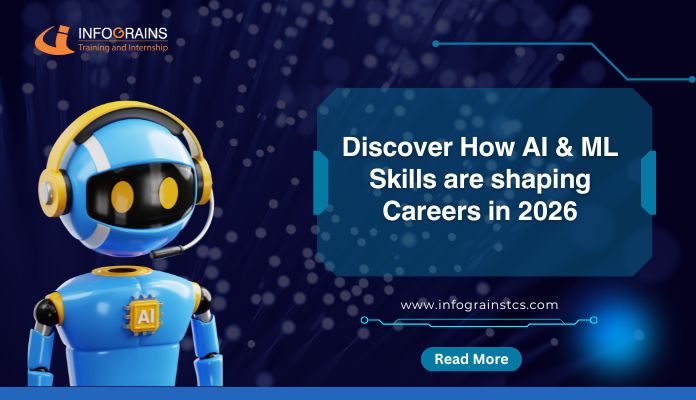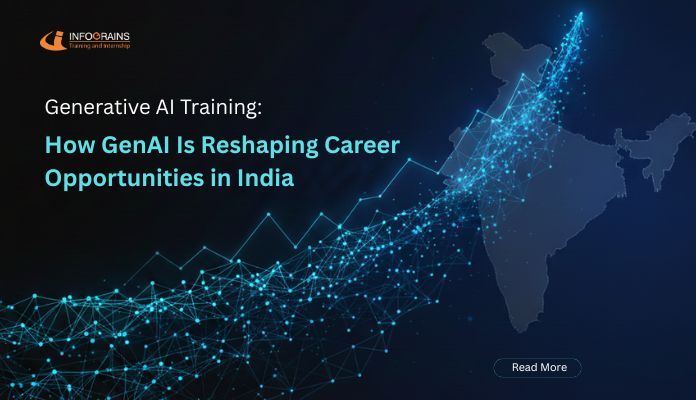Table of Contents
ToggleExecutive Introduction
The rapid evolution of digital ecosystems has positioned blockchain as one of the most influential technologies shaping global industries. While traditionally associated with programmers and tech professionals, blockchain is no longer exclusive to technical talent. Today, non-technical students—from commerce, arts, management, law, and even creative fields—are increasingly entering the blockchain space due to its rising demand in business analysis, product strategy, compliance, operations, and ecosystem consulting. This shift has encouraged learners across domains to explore how they can learn blockchain without technical background, opening new career opportunities in Web3 and decentralized industries.
Strategic Overview: Why Blockchain Literacy Matters Today
As industries like finance, supply chain, healthcare, aviation, cybersecurity, and government operations undergo decentralization, blockchain has become a core mechanism for digital trust. Gartner predicts that blockchain will generate $3.1 trillion in business value by 2030, making it a critical skill across enterprise functions. This demand has led to structured learning pathways where students without coding backgrounds can excel by understanding business logic, ecosystem workflows, token models, and governance—an approach that supports blockchain course for beginners who are entering this domain for the first time.
The Learning Reality: Can Non-Tech Students Truly Master Blockchain?
Absolutely—because blockchain is not only about programming, it is equally about logic, decision-making, security models, and digital economics. Non-technical students excel in:
- Business model analysis
- Process mapping
- Token economy design
- Smart contract use-case planning
- Compliance workflows
- Data-driven decision frameworks
This is where training programs such as the one offered by Infograins TCS become transformational. Our curriculum bridges the gap between conceptual understanding and practical implementation, enabling learners from any background to become industry-ready—making it ideal for those seeking blockchain training for students or career changers stepping into Web3.
Skill Requirement Matrix: What Non-Technical Students Need to Begin
Core Skills Needed (Beginner Level)
- Logical Reasoning
- Basic Computer & Internet Usage
- Understanding of Business Processes
- Analytical Thinking
Industry-Relevant Skills (Advanced Level)
- Tokenomics Design
- Decentralized Identity Understanding
- Smart Contract Lifecycle Knowledge
- Blockchain Governance & Compliance
- Use-Case Mapping Across Industries
These skills make blockchain accessible even to blockchain for non-tech learners who want to build careers in strategy, consulting, and blockchain operations.
Real-World Applications Where Non-Technical Students Excel
1. Blockchain Project Coordination
Setting project workflows, documentation, and compliance frameworks.
2. Tokenomics and Business Model Architecture
Understanding the economic layer of blockchain systems—key for startups and Web3 products.
3. Industry-Specific Implementations
- Supply chain traceability
- Healthcare record assurance
- FinTech KYC automation
- Digital identity systems
- Loyalty and reward ecosystems
In many of these blockchain training for beginners becomes essential for aspirants entering the field, especially those exploring blockchain for non-IT students looking to join the future digital workforce.
Outcome Analysis: What Students Gain After Learning Blockchain
Career Opportunities
- Blockchain Business Analyst
- Smart Contract Consultant
- Tokenomics Architect
- Operations Analyst for Web3
- DeFi Strategy Advisor
- Compliance & Risk Manager
Salary Growth Outlook
Industry reports show a 45–60% salary advantage for blockchain-skilled candidates over non-skilled profiles.
Infograins TCS as Your Strategic Learning Partner
As one of the leading training ecosystems, Infograins TCS specializes in preparing students—even without technical backgrounds—to excel in blockchain careers with:
- Real-time project implementation modules
- Industry-oriented blockchain case studies
- Mentorship from enterprise blockchain developers
- Hands-on tools for Web3, DeFi, Tokens & Smart Contracts
- Certification recognized by top tech companies
Our approach combines theory, practical exposure, and career guidance, enabling learners to become job-ready in the shortest time and supporting hundreds of blockchain for non-tech learners nationwide.
Industry Case Studies: How Non-Technical Professionals Are Already Leading in Blockchain
1. Supply Chain Transparency Models
Professionals with business and operations backgrounds are designing tracking workflows, vendor verification practices, and compliance triggers using blockchain.
2. Financial Governance in Web3
Management and finance graduates architect token ecosystems, audit models, rewards distribution logic, and treasury strategies.
3. Healthcare Data Assurance
Students from non-tech fields contribute to patient identity mapping, consent-based access workflows, and blockchain-backed health record assurance.
These examples prove that blockchain’s real power lies beyond coding—in process thinking, problem-solving, and ecosystem understanding.
Future Outlook: The Blockchain Workforce of 2035
By 2035, industries anticipate:
| Workforce Role | Share (%) |
| Business & Strategy | 45% |
| Product & Ecosystem | 30% |
| Technical Coders | 25% |
Non-technical roles will dominate as blockchain expands beyond coding into governance, operations, policy, and trust-based digital ecosystems—creating immense scope for blockchain training for students and young professionals.
Concluding Perspective
Blockchain is no longer a “tech-only” realm—it is a multidisciplinary transformation layer reshaping industries, policies, and digital economies. With structured guidance, curated learning models, and industry-backed tools, non-technical students can not only learn blockchain but thrive in it. Infograins TCS empowers learners with the clarity, confidence, and capability needed to lead the next era of decentralized global innovation—especially those striving to learn blockchain without technical background and shape future digital ecosystems.







